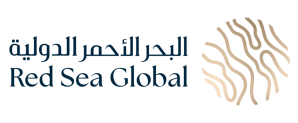Inside Red Sea Global’s Mission to Welcome All

Skift Take
This sponsored content was created in collaboration with a Skift partner.
Travel is a gateway to new experiences and insights, yet it represents a world of obstacles and limited options for over a billion people who live with disabilities. With an aging global population and growing health challenges, the demand for accessible tourism options is more pressing than ever.
Travel companies often treat the disability travel market as a legal checkbox instead of seizing it as a business opportunity. According to a European Network for Accessible Tourism estimate, the world loses approximately $150 billion annually due to a lack of facilities for disabled travelers. A study by Emerald Insight indicates that the accessible tourism market could produce revenues nearing $90 billion by 2025 — a 65 percent increase over the decade.
Saudi Arabia’s multi-project developer, Red Sea Global (RSG), is capturing this opportunity by integrating inclusive designs and facilities right from the planning stages at its Red Sea destination. Opening late last year, The Red Sea is now operational and welcoming international flights and visitors from across the globe. As the first Saudi giga-project to open, it aims to set high standards in accessible tourism practices.
“We know that brand loyalty from people with disabilities is incredibly high, largely due to the lack of viable alternatives. We aim to deliver accessible travel in a safe, dignified, and seamless way and make it as independent as possible to ensure travelers keep coming back,” said Mark Dyer, destination development associate director at Red Sea Global.
Building Accessibility from the Ground Up
Many tourism destinations have historically been retrofitted to accommodate people with disabilities. Being a new development, The Red Sea integrates universal design principles right from the design phase to ensure all visitors, regardless of physical, sensory, or cognitive abilities, can fully engage with the environment. This includes wheelchair-friendly pathways, sensory-friendly zones, and communication support.
According to Dyer, accessibility at The Red Sea begins well before guests arrive at the destination.
“We work closely with airlines, airport operators, and special assistance handling operators to communicate with disabled people throughout the key stages of their journey. This enables us to provide information and reassurance while ensuring that any interventions from our side are appropriate and dignified,” Dyer said.
The developer is also preparing an accessibility guide for a new airport terminal with advanced accessibility features scheduled to open next year. Partners and travelers will receive this guide, which encourages guests to specify their needs in advance.
Additionally, RSG has established an accessibility committee to implement the UN-backed ISO 21902 — Accessible Tourism for All standard. All employees, consultants, and partners must adhere to this standard across all operations, which covers a wide range of disabilities, including mobility, hearing, and sight impairments, autism, chronic pain, and more.
“We’re aware that a disabled person can have vastly different aspirations for adventures and experiences across a wide range of physical, sensory, and cognitive abilities — the same as any other visitor. It’s important to recognize those differences to create the special memories everyone looks for,” Dyer said.
The Visitor Experience for People with Disabilities
The Red Sea features a variety of activities designed to be accessible to all visitors, including sailing, kayaking, and diving. The destination recently became the first project in the country to receive a PADI certification for disability-friendly diving at its two centers. This certification confirms that all elements of the diving experience are inclusively designed, including infrastructure, logistics, communication, training, and safety. It also guarantees wheelchair accessibility in all diving areas and on boats.
“We offer scuba diving and sailing experiences with specially trained instructors to teach people with disabilities. The Earth Lab at Six Senses Southern Dunes provides a wide variety of accessible activities that stimulate all senses, including a cooking school and world-class spa and treatment facilities accessible to people of all abilities. Trained teams ensure that all guests, regardless of their abilities, can fully participate,” Dyer said.
The developer is also refining walking and hiking trails at The Red Sea to accommodate a range of abilities. Plans include routes of varying difficulty and sensory-oriented programs like the Dark Skies initiative, which offers observational activities suited for those with specific sensory needs.
“We’ve been working hard to understand how specific adapted vehicles and equipment can deliver a sense of adventure. There’s an exciting range of powered and manual buggies, trikes, and assistive equipment that can deliver these experiences, and we’re discussing the most appropriate options for each specific environment. We want this to be an inclusive experience involving everyone,” Dyer said.
Evolving Accessibility with Guest Feedback
According to Dyer, the initial response from guests who have visited The Red Sea destination has been largely positive.
“The feedback we've received has been incredibly affirming, with guests praising the accessibility and overall experience. This feedback helps us understand guest expectations and what else we can do to make a meaningful and positive difference,” Dyer said.
The company is shaping its future initiatives based on guest insights to meet its visitors’ real-world needs. For example, it plans to expand its accessibility features to include high-profile events and activities tailored for elite athletes and integrated into broader sports programs. Additionally, the upcoming launch of a new fleet of accessible boats responds to the identified need for more diverse recreational activities.
The Red Sea and AMAALA destinations, managed by Red Sea Global, feature varied terrains that present different accessibility challenges. Some areas are more accessible to individuals with certain disabilities than others. Recognizing this, Red Sea Global ensures guests with disabilities receive detailed, accurate information to make informed decisions about their visits. The company plans to release a comprehensive accessibility guide detailing these options later this year.
“This is just the beginning of our journey to push the boundaries of what accessible tourism can offer. Our goal is to develop and manage a guest experience that’s not only consistent and integrated across our destination but also sets new industry standards,” said Dyer.
For more information about The Red Sea, visit visitredsea.
This content was created collaboratively by Red Sea Global and Skift’s branded content studio, SkiftX.





